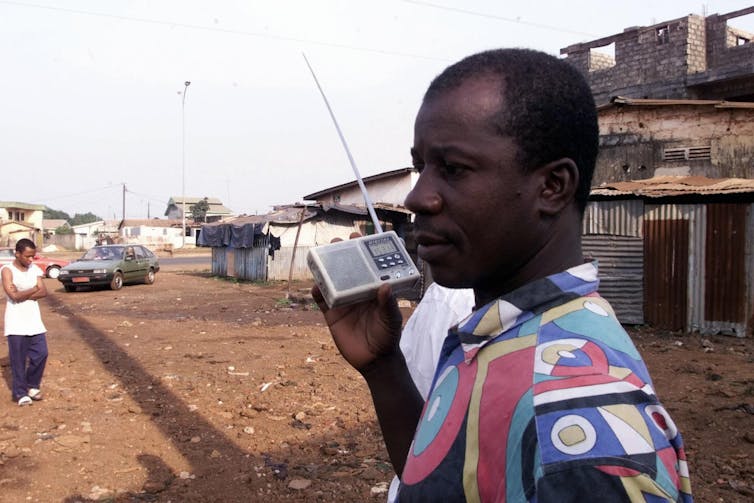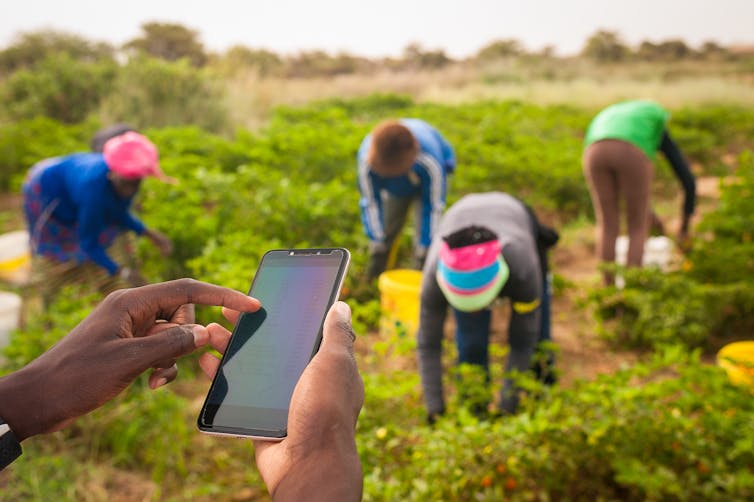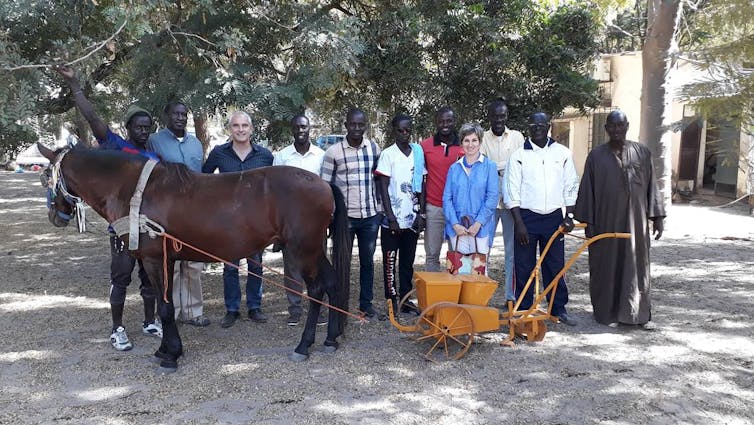Oyo State and 12 other states of the federation are still running local government administration without elected officials despite a judgment of the Supreme Court which about four years ago expressly forbade them from doing so.
The states are running the local government areas through caretaker committees, appointed by governors.
Among the defiant states are Borno and Yobe, which are citing the insurgency in the North-east for defying the Supreme Court order.
However, the two states, which have not held council polls since 2014 recorded a large voter turnout in the 2015 and 2019 elections, notwithstanding the insecurity in the region
In the judgment delivered on December 9, 2016, the Supreme Court had voided laws enacted by states’ Houses of Assembly that empowered governors to sack elected local government chairmen and councillors and replace them with handpicked administrators.
In the unanimous judgment of five justices, the Supreme Court described the sacking of elected local government administrators as “executive recklessness” that should stop immediately.
The judgment by the five-man panel, led by Justice Olabode Rhodes-Vivour, was given in an appeal over the dissolution of the 16 local government executives in Ekiti State by Dr. Kayode Fayemi during his first term as governor.
The Supreme Court, in faulting the law purportedly relied on by Fayemi to dissolve the local government administration, held that Section 23(b) of the Ekiti State Local Government Administration (Amendment) Law, 2001, which empowered the governor to dissolve local government councils, whose tenure was yet to expire, violated section 7(1) of the Constitution from which the state House of Assembly derived the power to enact the local government law.
Justice Centus Nweze, who delivered the lead judgment, held that the tenure of the local government councils could not be abridged without violating the supreme constitutional provisions.
However, a fresh controversy over the illegal sacking of elected local government administration broke out recently with the removal of the elected local government administrators in Oyo State by the Governor, Mr. Seyi Makinde.
The furore generated by Makinde’s action prompted the intervention of the Attorney-General of the Federation and Minister of Justice, Mr. Abubakar Malami (SAN), who directed the governor to reinstate the sacked administrators in compliance with the extant Supreme Court judgment.
Malami, in a letter dated January 14, 2020, told the governor that in view of the decision of the Supreme Court on the matter that is binding on all the 36 states of the federation, “the common practice by some state governors in dissolving elected local government councils is unconstitutional, null and void.”
The Inspector General of Police, Mr. Mohammed Adamu, has also directed the Oyo State Commissioner of Police, Mr. Shina Olukolu, to ensure reinstatement of the sacked chairmen and councillors.
Adamu, in a letter dated January 23, 2020 and addressed to the Oyo State Chairman of the All Progressives Congress (APC), Chief Akin Oke, asked him to liaise with Olukolu to facilitate the implementation of the AGF’s legal opinion.
However, some Senior Advocates of Nigeria (SANs) are divided on the mode of enforcement of the Supreme Court’s judgment.
While some SANs like Chief Mike Ozekhome; Mr. Dayo Akinlaja and Mr. John Baiyeshea said the apex court should be approached for the enforcement of its judgment, others like the former President of Nigerian Bar Association (NBA), Mr. Olisa Agbakoba and Mr. Ahmed Raji urged the federal government to seize the statutory allocations of the affected local governments and pay them into special accounts, pending the conduct of elections in their areas.
The National President of Association of Local Government Vice Chairmen of Nigeria (ALGOVC), Hon Lawrence Onuchukwu, told THISDAY at the weekend that the governors used unelected council chairmen as conduit pipes to allegedly siphon monies allocated to LGAs.
However, the practice of dissolution of elected councils was not restricted to Oyo State as at least 12 other states have also flouted the apex court’s decision.
Apart from Oyo State, the 12 other states are Katsina, Borno, Yobe, Kwara, Kogi, Bauchi, Taraba, Benue, Enugu, Anambra, Imo and Ogun.
In Katsina, the state Governor, Hon. Aminu Bello Masari, said the inability of the state government to conduct local government election was due to litigation by the state chapter of the Peoples Democratic Party (PDP) against his dissolution of elected LG chairmen.
Masari had in 2015 sacked all the 34 elected local government chairmen and their 361 councillors whose elections were conducted by the past PDP administration of Alhaji Ibrahim Shema.
He thereafter inaugurated caretaker committee chairmen, comprising largely of partisans, for the 34 councils.
But the PDP sued Masari and the ruling All Progressives Congress (APC) to challenge the dissolution of the local government chairmen. The case is currently at the Supreme Court.
In dissolving the local government administrators then, the governor had said the state government did not violate any law as it followed the law enacted by the previous PDP administration in the state.
In Anambra State, the 21 LGAs are also being run by appointed chairmen.
When contacted, the state Commissioner for Information and Public Enlightenment, Mr. C.Don Adinuba, attributed the failure to hold local government elections in the state to legal hurdle.
According to him a political party sued the state government over the constitution of transition committee for the local government areas and the court of Justice Peter Umeadi who was the then Chief Judge of Anambra State ruled in their favour, asking that an election be held.
He added that the matter is before the Supreme Court and it will be sub judice to hold the election for now.
In Kwara State, Governor Abdulrahman Abdulrasaq, few weeks after assumption of office on May 29, 2019, had ordered the suspension of the elected 16 local government council chairmen in the state from office for six months.
He had since extended the suspension of the council chairmen, who were elected on the platform of PDP during the immediate past administration of former Governor Abdulfatah Ahmed, indefinitely, following a resolution by the State House of Assembly alleging financial impropriety against the chairmen.
The governor’s Chief Press Secretary, Mr. Rafiu Ajakaye, said in view of the allegation of misappropriation of public funds against the chairmen, their suspension was extended, pending the outcome of an investigation by the Economic and Financial Crimes Commission (EFCC).
In Taraba State, the last local government election for the 16 LGAs in the state was conducted on February 21, 2017 while the elected officials were sworn into office on February 28, for a two-year tenure.
Since the expiration of their tenure on February 28, 2019, the local government areas are being run by caretaker committees appointed by the state government.
Justifying the delay in the conduct of elections into the various councils, the Senior Special Assistant on Media and Publicity to the state governor, Mr. Bala Dan Abu, said until recently, there were serious security challenges in the state that made it impossible to conduct local government elections.
The state Commissioner for Information, Mr. Danjuma Adamu, however, said the state government was planning to conduct elections into the various councils.
In Borno State, the last time election was held in the 27 LGAs was in 2014.
The state government has always cited insecurity as the excuse for not conducting LG election.
But notwithstanding the insecurity, the state took part in Nigeria’s general election both in 2015 and 2019.
The Commissioner for Information, Home Affairs and Culture, Mr. Babakura Jatto, did not comment on the issue.
In Yobe State, the 17 local government areas do not have elected representatives of the people manning their affairs at the councils as the state government has also blamed insecurity for not conducting LG elections.
The state Commissioner for Information, Home Affairs and Culture, Malam Abdullahi Bego, did not respond to messages sent to him via his e-mail and phone.
But Adamawa State, which was also affected by the insurgency in the North-east, conducted LG elections for the 21 LGAs in the state in December 2019.
In Bauchi State, the 20 LGAs are run by caretaker committees as the last time local government election was conducted in the state was during the administration of former Governor Isa Yuguda.
However, Governor Bala Mohammed, had shortly after his victory at the Supreme Court, promised to conduct LG elections within six months.
The last election for the 21 LGAs in Imo State was held in 2018 by former Governor Rochas Okorocha.
Okorocha had sacked all the elected local government officials whose elections were conducted by the administration of Chief Ikedi Ohakim and did not conduct local government election until in 2018, exactly one year to the end of his eight-year tenure.
However, Emeka Ihedioha before his sacking by the Supreme Court as governor of the state, had suspended the elected officials. His replacement, Senator Hope Uzodinma, has promised to conduct council polls soon.
In Ogun State, Governor Dapo Abiodun is also running the 20 LGAs with caretaker committees, saying that the elected council officials served out their tenure about five months ago.
His Chief Press Secretary, Mr. Kunle Somorin said that there was no mischief intended in putting unelected officials to man the local council areas.
“It is a transitional arrangement and elections will soon hold as the elected local government officials only served out their tenure last October.
“A State Electoral Commission has not been set up; once it is set up, the body will do the needful by organising local government elections,” he stated.
In Benue State, the last local government poll was in June 2017 and the two-year tenure of the elected officials expired in July 2019.
Since then, the 23 LGAs in the state are being run by appointed officials.
However, the Chairman of the Benue State Independent Electoral Commission (BESIEC), Mr. Tersoo Loko, said they were working hard to conduct free, fair and credible elections.
Governor Samuel Ortom also said that BESIEC had confirmed that it was ready to conduct the elections in March.
In Enugu State, the elected LG chairmen’s tenure ended on December 3, 2019, without a new election for their successors.
Governor Ifeanyi Ugwuanyi has since appointed caretaker committees to run the 17 LGAs, pending a new election scheduled for February 29.
The Commissioner for Information in the state, Mr. Chidi Aroh, told THISDAY that the state government had also provided the Enugu State Independent Electoral Commission (ENSIEC) with all the resources needed to conduct the elections.
In Kogi State, the 21 LGAs are being run by appointed administrators since 2016 and no plans yet by Governor Yahaya Bello to conduct LG elections in the state.
SANs divided on enforcement of Supreme Court’s verdict
Meanwhile, some SANs are divided on the mode of enforcement of the Supreme Court’s judgment.
Ozekhome said that the federal government should approach the Supreme for the enforcement of its judgment.
He noted that such suits are usually done through an originating summons since the facts of the case are clear and not disputable.
“Either the federal or the LGAs throughout their association of LGAs – ALGON, should approach the Supreme and federal/state high courts respectively to enforce the clear judgment of the Supreme Court.
“This can be done by originating summons because the facts are clear and not disputable. It only requires interpretation and enforcement,” he said.
Akinlaja also urged the parties to go back to the court, saying that the enforcement of a court’s judgment is not the responsibility of the federal government.
“I am not aware that the federal government is a police of some sort that will be enforcing the decision of a court. The responsibility of enforcing the judgment of a court does not strictly fall on the federal government; it is those that are concerned that will go to court for enforcement either by way of contempt of court or by whatever way and manner,” he said.
He added that the federal government without the backing of the law cannot unilaterally withhold funds from local government manned by appointed officials as that would amount to illegality.
Baiyeshea shared the same view with Akinlaja that the federal government lacked the powers to enforce the judgment of a court.
“In a federation, all the constituent parts are supposed to enjoy a great measure of independence.
“Where the states are as in this case, alleged to be flouting court judgments with respect to the autonomy of local governments, it is the court(s) that gave the judgments that have the power to enforce the judgments,” he said.
But Raji held a different opinion, saying that since the judgment of the apex court is clear and not disputable, the federal government can pay all monies due to any local government that is being manned by unelected officials into special accounts.
Agbakoba also held the view that the federal government can withhold funds from local government manned by unelected officials.
This measure, according to him, will compel governors of the affected states to conduct election at the local government level.
“The issue of unconstitutional non-elected LGs has been with us for a long time and lawsuits have been filed, including mine, to declare these LGs unconstitutional; but regrettably without success, as I lost my suit before Justice Hassan of the Federal High Court.
“But now, our Supreme Court has put the matter to rest by declaring these unaccountable LGs unconstitutional and I recommend that in order to enforce the judgment, the federal government should withhold public funds due to them until compliance with the judgment. I foresee that this type of enforcement will compel elections at these LGs,” Agbakoba said.
Junior lawyers were also divided on the issue, with an Abuja-based legal practitioner, Mr. IfeanyiChuku Obasi-Nweze, aligning himself with the position of Ozekhome and his group that the judgment creditor should approach the court to seek the enforcement of the judgment of the Supreme Court.
But another Abuja-based legal practitioner, Mr. Steve Ekeh, said the use of non-elected officials to run LGAs can be checked through the withholding funds of the appointed officials. (ThisDay)

![]()




